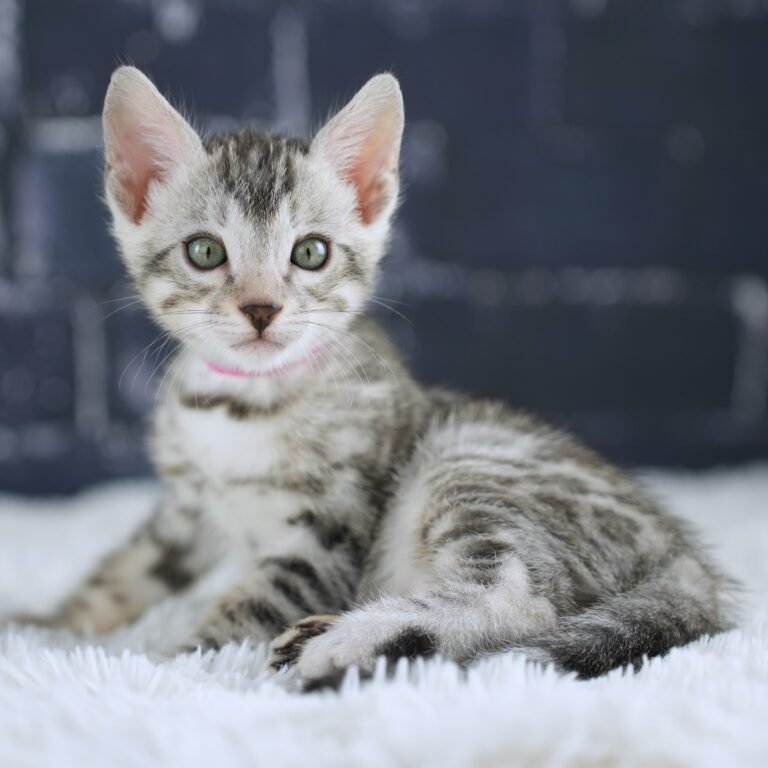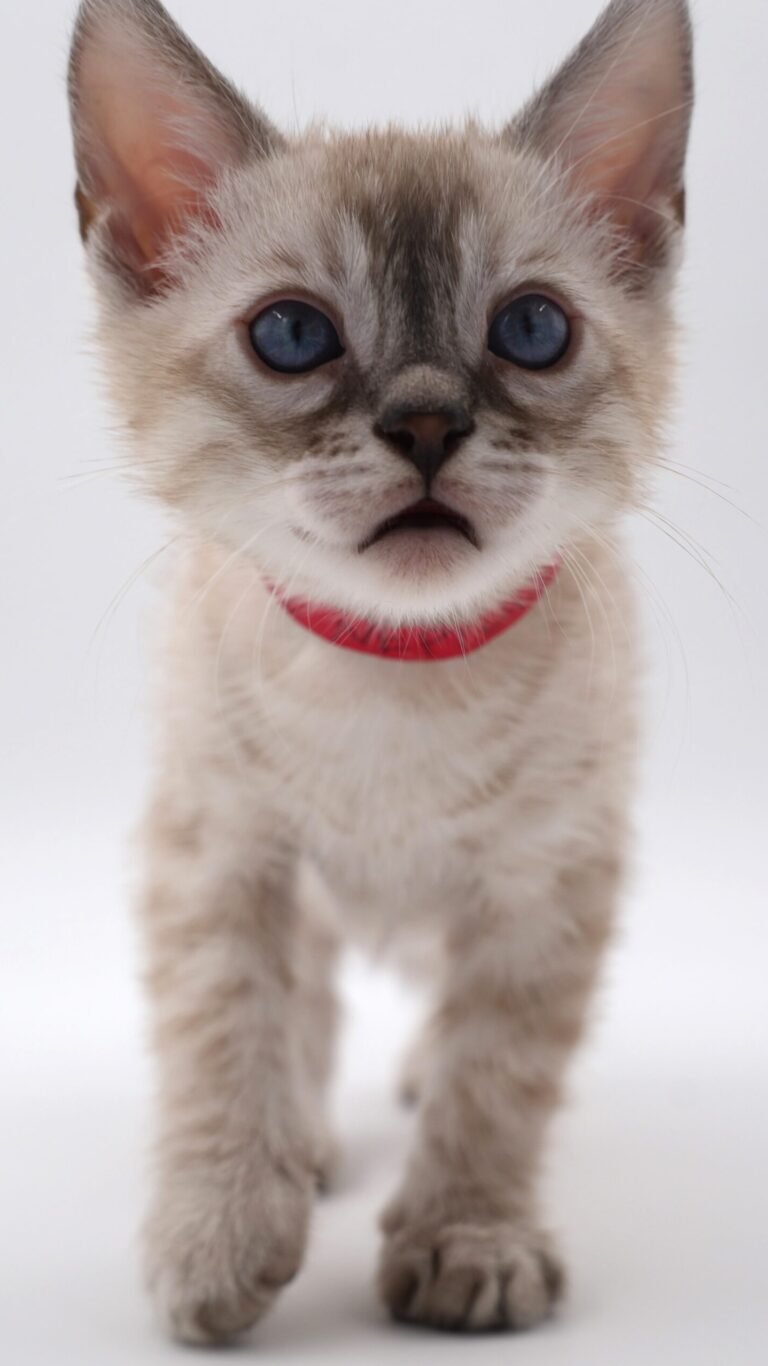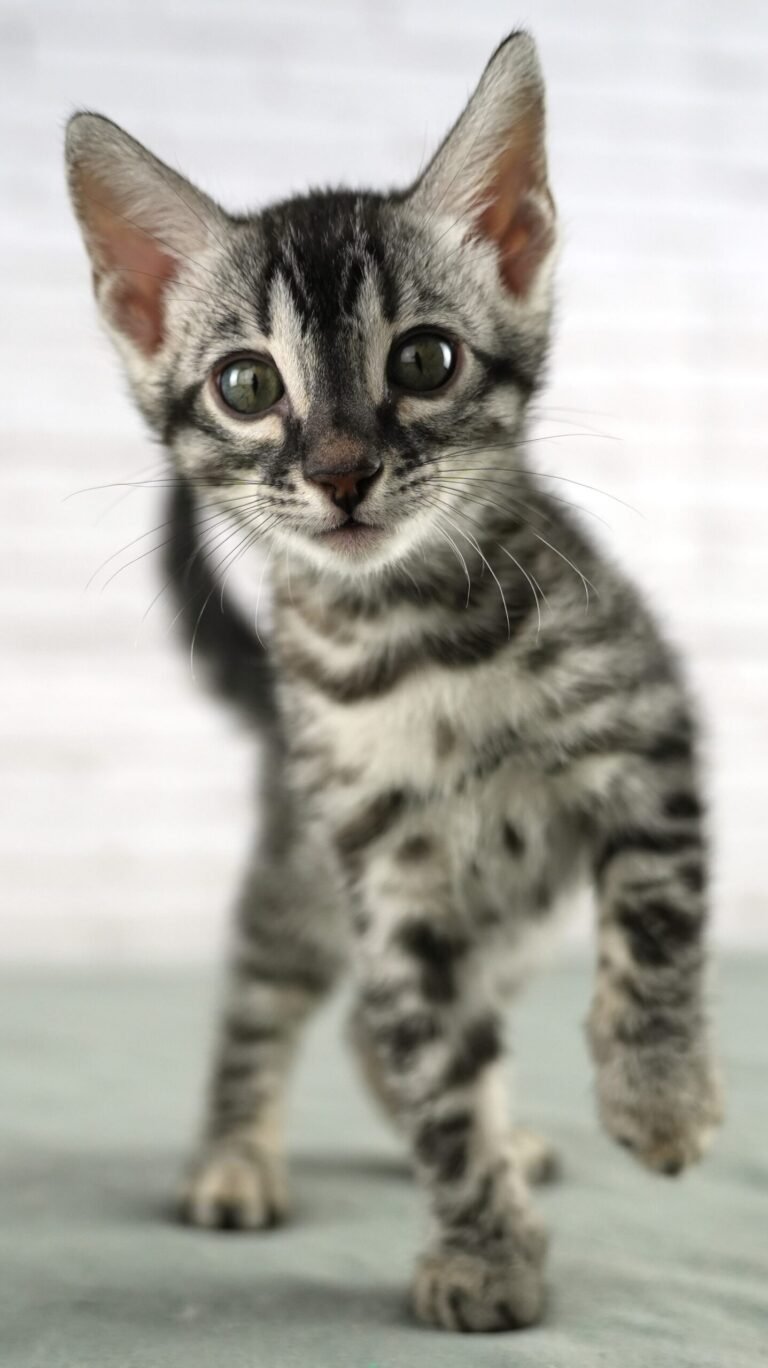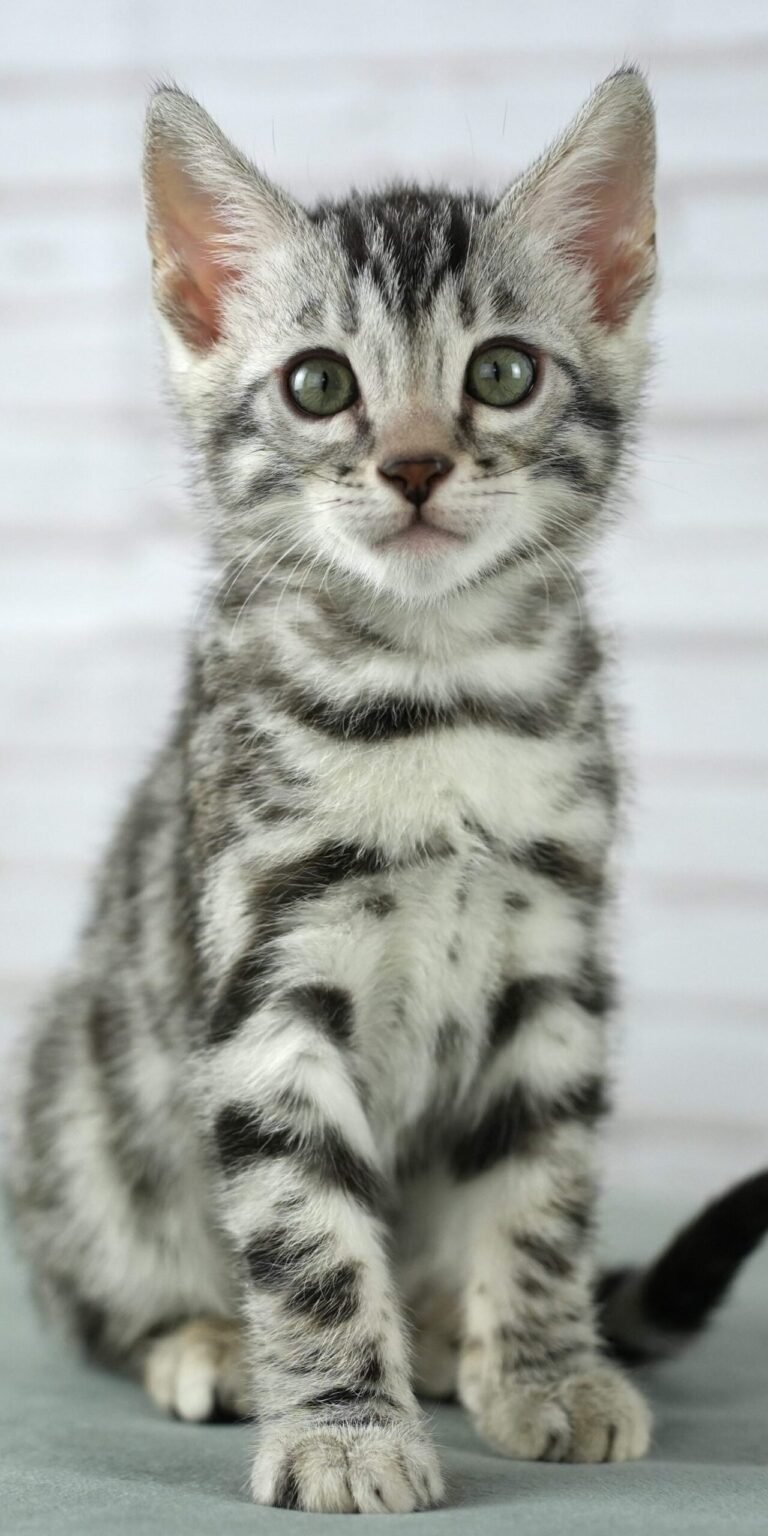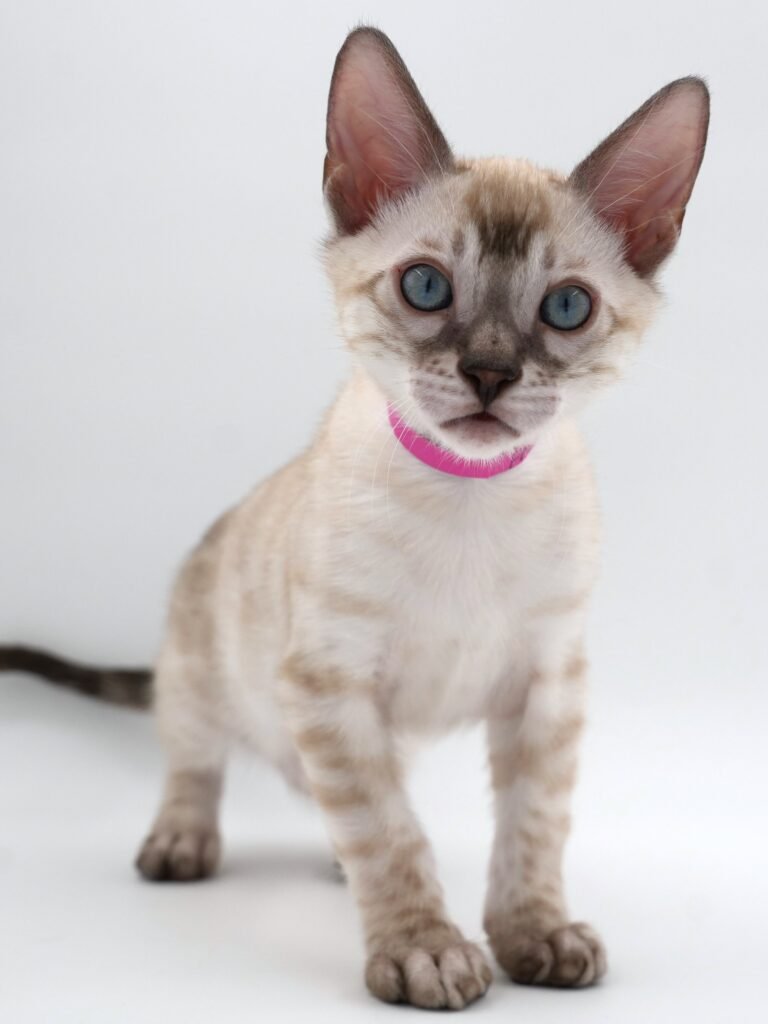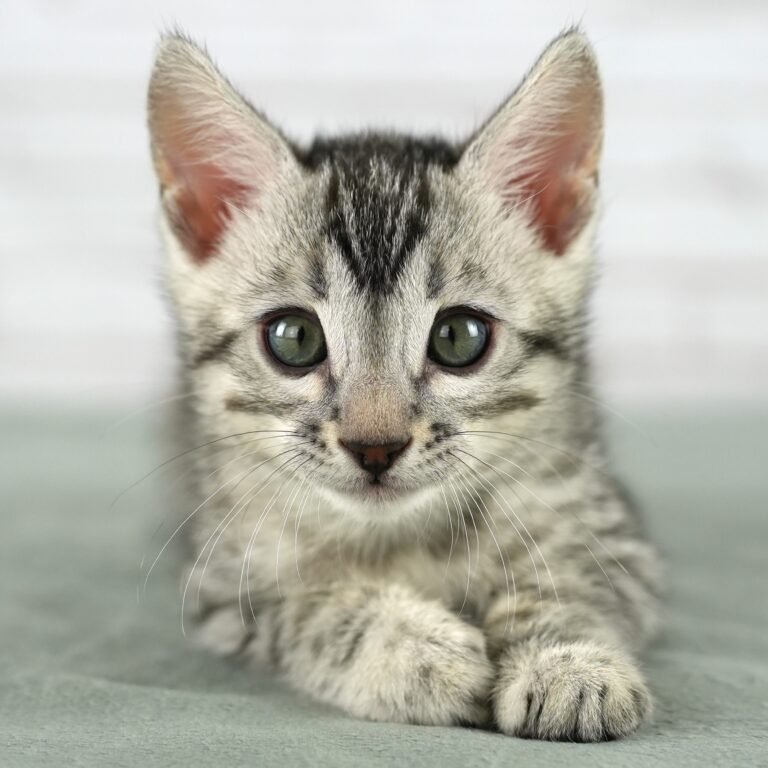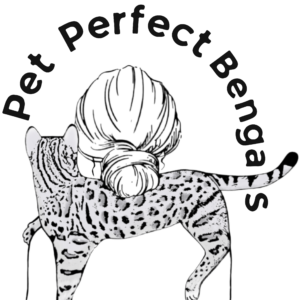Bengal Dietary Needs: Beyond the Bowl
What fuels the vibrant energy and stunning beauty of Bengal cats?
As obligate carnivores, their dietary needs go beyond just feeding — they require nourishment that aligns with their instincts and biological requirements. Cats depend entirely on animal proteins, as they cannot synthesize essential vitamins, amino acids, and fatty acids independently. Ensuring a diet rich in high-quality animal protein is crucial to prevent deficiencies that could lead to serious health concerns. Understanding what’s in your Bengal’s bowl and avoiding common food mistakes are essential steps in safeguarding their wellness.
From Fillers to Facts: Understanding Commercial Cat Food for Bengals
Many commercial cat foods, particularly kibble and low-quality wet foods, contain high levels of carbohydrates and plant-based ingredients that are not well-suited to the digestive system of Bengal cats.
Bengals, like all felines, are obligate carnivores, meaning their bodies are designed to digest and utilize nutrients primarily from animal sources. Unfortunately, many commercial foods are packed with fillers like corn, wheat, and soy, leading to inefficient digestion and reduced absorption of vital nutrients.
These carbohydrate-rich diets can contribute to several health problems, including obesity and diabetes, which are particularly concerning for the active and muscular Bengal breed.
Additionally, the use of plant-based proteins as a cost-effective substitute for animal proteins in many commercial foods fails to provide the complete amino acid profile cats need. This can negatively impact their coat health, immune system, and overall vitality. To ensure your Bengal thrives, choose a food rich in high-quality animal proteins and free from unnecessary fillers.
Here’s a great video series on Cat Nutrition
The Prey Model Raw Diet: Nature’s Blueprint for Bengal Nutrition
At Pet Perfect Bengals, our cats receive a Prey Model Raw (PMR) diet, designed to mimic what they would naturally eat in the wild. This approach ensures your Bengal gets the right balance of nutrients, just as nature intended.
- 80% Meat: Provides the essential protein that forms the majority of a Bengal’s diet, supporting muscle growth and energy levels.
- 10% Bone: Offers calcium, phosphorus, and other essential minerals, while helping to maintain dental health through natural chewing action.
- 10% Organs: Including at least 5% liver, which is rich in vitamins and minerals, replicating the nutritional profile of natural prey.
Did you know? Chewing on edible raw meaty bones not only provides nutritional benefits but also helps scrape tartar off your Bengal’s teeth, promoting oral health. Examples of edible bones for Bengal cats include pig tai, chicken feet, duck necks, and whole quail. This natural approach to feeding promotes a balanced and diverse gut microbiome, composed of beneficial bacteria that aid in digestion, immune function, and overall health.
Ensuring Complete Nutrition: Supplements for the PMR Diet
While the Prey Model Raw (PMR) diet offers numerous benefits, it’s important to address its challenges to ensure complete nutrition for your Bengal:
Nutrient Depletion Due to Blood Loss: During animal processing, blood loss can significantly impact the nutritional content of the meat, depleting essential nutrients such as heme iron, B vitamins, and minerals. These losses can affect your Bengal’s red blood cell production, energy metabolism, and overall health.
Nutrient Loss from Freezing and Thawing: Freezing raw food, a common practice to maintain freshness and safety, can lead to the loss of essential vitamins and enzymes, reducing the nutritional value.
Incomplete Nutritional Profile: The PMR diet, while comprehensive, may overlook certain parts like the brain and glands, which are rich in DHA, taurine, and other nutrients crucial for cognitive function, heart health, and overall well-being.
While these examples illustrate challenges associated with the PMR diet, it’s crucial to recognize that similar or even more serious issues can arise with kibble and wet foods. Given these challenges, supplementation becomes essential. We include NuVet Plus Feline Powder in our feeding regimen to fill any potential nutritional gaps, ensuring your Bengal remains in peak condition.
Recommended Food Suppliers
To support your Bengal’s dietary needs, we recommend the following high-quality food suppliers:
Raw Delivery MN: Offers fresh, local raw food in five-pound tubes. The 80/10/10 ratio is what we exclusively use at Pet Perfect Bengals. With 10 pounds (two tubes) of thawed raw food, we add 3-4 eggs and one 15oz can of sardines to create a more complete meal. We then refreeze this mixture in individual serving sizes.
*Sardines: Always check the label to ensure there are no added oils, gums, or unnecessary ingredients. The ingredients in the sardines we use are: Sardines (Fish), Tomato Paste, Water, Salt. However, this brand also makes sardines with added starch, guar gum and oils, so always check the ingredient list before purchasing.
Viva Raw: Specializing in balanced raw diets with the option of added supplements, eliminating the need for additional eggs and sardines. Viva Raw comes highly recommended for their commitment to quality. Their convenient one-pound packages are perfect for households with just a few cats, ensuring freshness with every meal.
*For full transparency, we receive credit toward our purchases when you use our link. However, we endorse Viva Raw because we genuinely value their products and want to share the benefits with you. To receive 20% off your first order of Viva Raw use our link. Orders over $250 qualify for free shipping.
Hare Today: Offering a variety of raw foods and whole prey options. Hare Today is an excellent resource for pet owners seeking comprehensive education on raw feeding and provides quality products that support your Bengal’s natural dietary needs.
Woodys Pet Deli: Specializing in 80/10/10 ratio meals with the option of added supplements, eliminating the need for additional eggs and sardines. They source premium raw meats, bones, and organs from grass-fed and free-range suppliers.
Their knowledgeable staff provides excellent guidance on raw feeding transitions and maintains consistent quality standards that Bengal owners can trust.
ZIWI Peak Air-Dried Cat Food: For those who prefer not to handle raw food, ZIWI Peak offers a convenient and nutritious alternative. Made with high-quality ingredients that align with your Bengal’s carnivorous nature, we often use ZIWI Peak as a nutritional treat for our Bengals.
These options are carefully selected to provide the best nutrition, ensuring your Bengal grows strong, healthy, and full of life.
Smooth Transitions: A Guide to Switching Your Cat's Food
Feeding Excellence: Choose the Best for Your Bengal
In conclusion, ensuring your Bengal cat’s health and vitality starts with understanding their unique dietary needs. By choosing a natural, high-protein raw diet and essential supplements, you’re not just feeding your Bengal, you’re nourishing them in a way that supports their instincts and long-term well-being. At Pet Perfect Bengals, we believe that each meal is a step toward a vibrant, thriving life for your cat. Your dedication to their nutrition today is an investment in their health and happiness for years to come.

